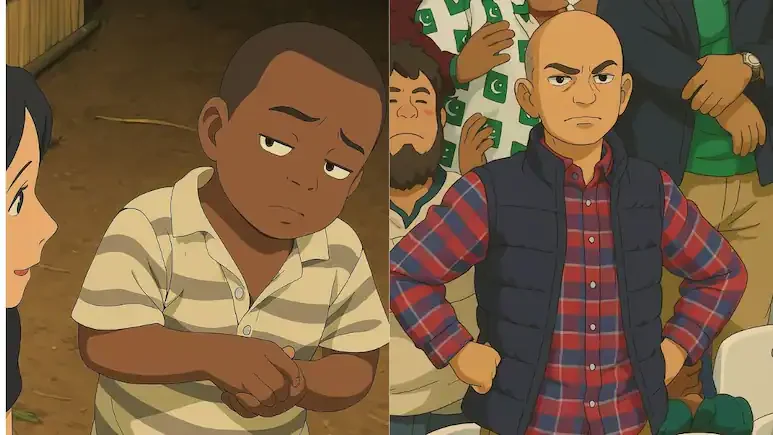
Recently, social media has been buzzing with a ton of photos transformed into AI-Generated Studio Ghibli Art. It’s all because of the new AI image generator from ChatGPT. This time, it’s transforming your regular photos into magical pieces that look like they came straight out of a Studio Ghibli film.
First, I was fascinated by the anime-inspired pictures of people I know and famous memes. However, then I started to think about how harmful it is. What are the implications of this technology on anime art? Is this what we’ll see in the future?
AI-Generated Studio Ghibli Art Is Taking Over
As you can see, people are posting their “artwork” everywhere on social media, and it’s no surprise. These pictures seem to bring to life the vibrant colors, and delightful magic that makes Studio Ghibli-style so appealing.
I think there might be some cool tech involving diffusion models and neural networks that break down artistic features and remix them for your photos. You just have to upload your picture, pick the style you want, and then watch AI doing its magic.
As you browse through Reddit and X, you’ll come across a lot of posts, ranging from AI-generated landscapes to self-portraits. Some users are really experimenting by uploading images of cityscapes, their pets, or even nostalgic childhood snaps. It’s fascinating to see how these images turn into scenes that look like they belong in a Ghibli film.
But how is this affecting art? How harmful and hurtful it is for actual artist behind the iconic Studio Ghibli aesthetic?
Is This the Future of Anime Art?
However, the surge of memes has raised concerns about copyright issues. Although a particular style can’t be directly protected by copyright, a lawyer mentioned to Tech Crunch that OpenAI might have violated the law. ChatGPT’s latest model very likely used millions of frames from Ghibli’s movies to create images in the Studio Ghibli style.
“I think this raises the same question that we’ve been asking ourselves for a couple years now,” Evan Brown, a lawyer specializing in intellectual property at Neal & McDevitt, shared with Tech Crunch. “What are the copyright infringement implications of going out, crawling the web, and copying into these databases?”
To add to the situation, Hayao Miyazaki, one of the founders of Studio Ghibli, was shocked when he first saw AI technology a few years back.
“I am utterly disgusted,” Myazaki expressed after seeing an AI presentation. “If you really want to make creepy stuff, you can go ahead and do it, but I would never wish to incorporate this technology into my work at all. I strongly feel that this is an insult to life itself.”
Currently, it looks like AI companies develop their models using a combination of open-source and private data. However, the debate about ethics is likely to continue for a long time.
What I Think About It?
Honestly speaking, I was really taken aback when I saw this over-hyped trend everywhere on social media. At first, I felt nice to see art presented in vibrant Ghibli style. But, when I thought about it critically, I felt very uneasy.
I don’t consider these AI-generated images as art. This isn’t inspiring at all. It’s simply copying existing styles. How would you feel if someone copies your work and reuses it without your permission? It is huge threat to Hayao Miyazaki whose creation is being replicated without his permission.
To me, it doesn’t feel nostaglia honestly. I agree that AI can do wonders; it has impressive capabilities. It could be helpful if you use it in a right way. But, you need to understand the difference between leveraging AI to boost creativity and relying on it to copy someone else’s creative work. I would say this isn’t harmless fun.
It’s something we should be questioning and discussing openly. So, no, I don’t see this thing needs to be praised.

